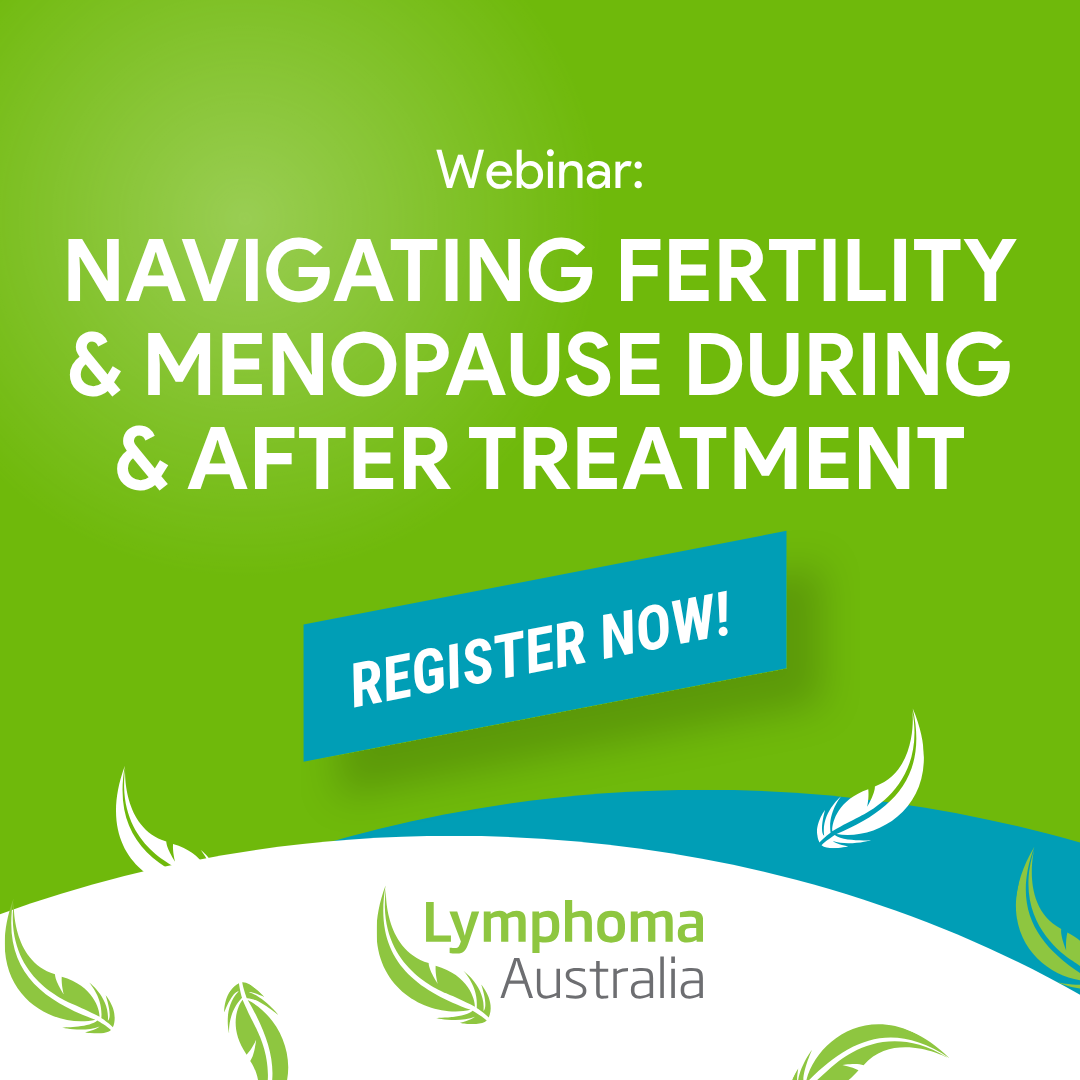Lymphoma Australia invites you to our next free educational webinar tailored for patients, families, and carers affected by lymphoma.
This session will provide valuable insights into both men and women’s fertility preservation, accessing services, and managing menopausal symptoms during and after treatment.
Event Details
Date: Wednesday, 20th August
Time: 4:00pm to 5:30pm (AEST)
Location: Online via Zoom Webinars
Cost: Free, registration required
Webinar Agenda
Welcome and Introduction
Dr Genia Rozen: Fertility preservation options at the time of diagnosis
Aisling Murphy: How to access fertility preservation services
Professor Kate Stern: Options after treatment including managing menopausal symptoms
Live Q and A Session
Guest Speaker Bios
Aisling Murphy
Aisling Murphy is an Irish-trained Midwife and Fertility Nurse with a special interest in fertility preservation and women’s health. She is the Clinical Midwife Consultant and Program Coordinator of the Royal Women’s Hospital’s National Paediatric and Adolescent Fertility Preservation Program. Previously, she served as the Fertility Preservation Clinical Midwife Consultant for Reproductive Services at the Royal Women’s Hospital, overseeing the national ovarian and testicular tissue cryopreservation service.
Dr Genia Rozen
Dr Genia Rozen is a Melbourne trained Gynaecologist and Fertility Specialist with a strong focus on medical fertility preservation. She is the Deputy Director of the Fertility Preservation Service at the Royal Women’s Hospital and a Clinical Lecturer in Obstetrics and Gynaecology at the University of Melbourne. Genia completed her PhD researching endometrial receptivity and the uterine effects of cancer treatment.
Professor Kate Stern
Associate Professor Kate Stern is a fertility specialist, gynaecologist and reproductive endocrinologist. She is Head of Reproductive Services at the Royal Women’s Hospital in Melbourne, where she leads Australia’s first fully public fertility and IVF service. Kate is also Clinical Director and Head of Clinical Research at Melbourne IVF, and co-chaired the COSA Fertility Preservation Guidance Committee. She was awarded the Order of Australia in 2022 for her significant contributions to reproductive medicine.
Spaces are limited so register now to secure your place.
A Zoom link will be sent upon registration.

